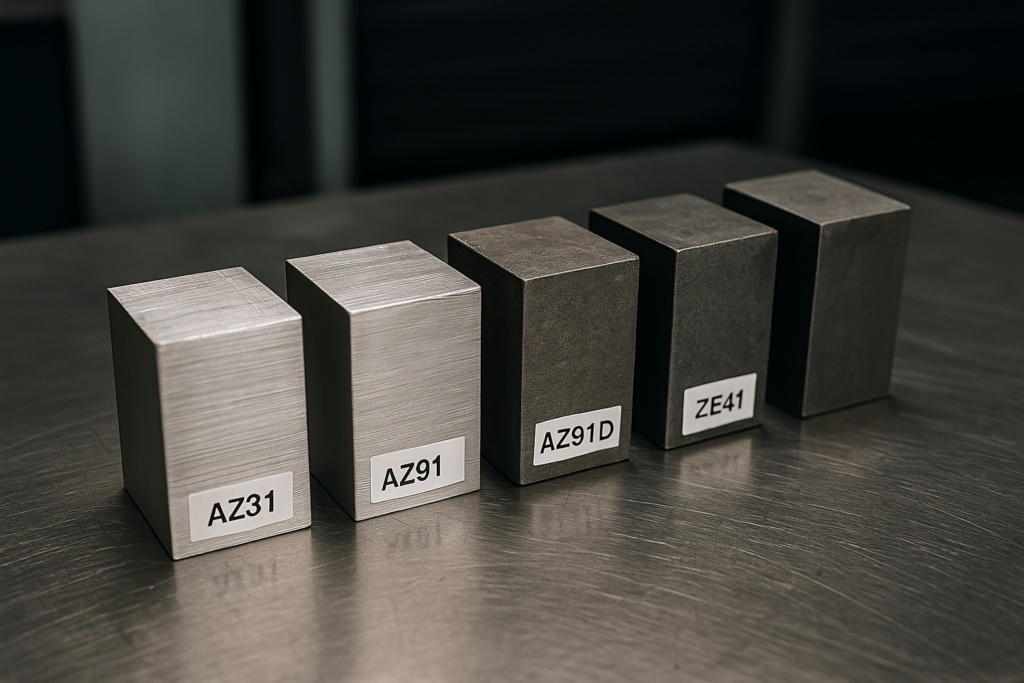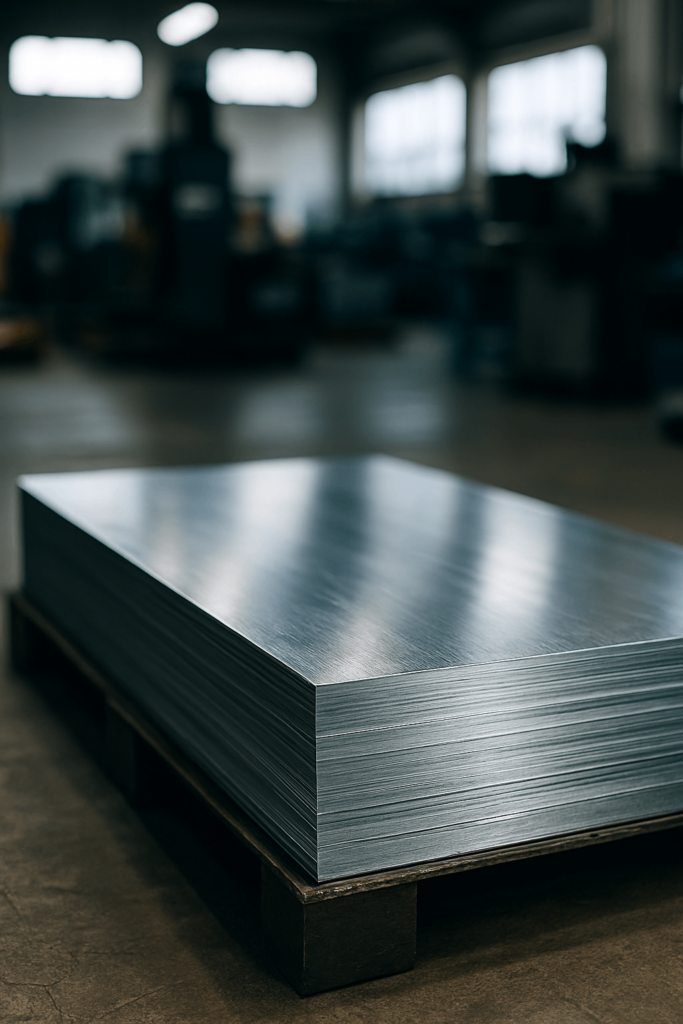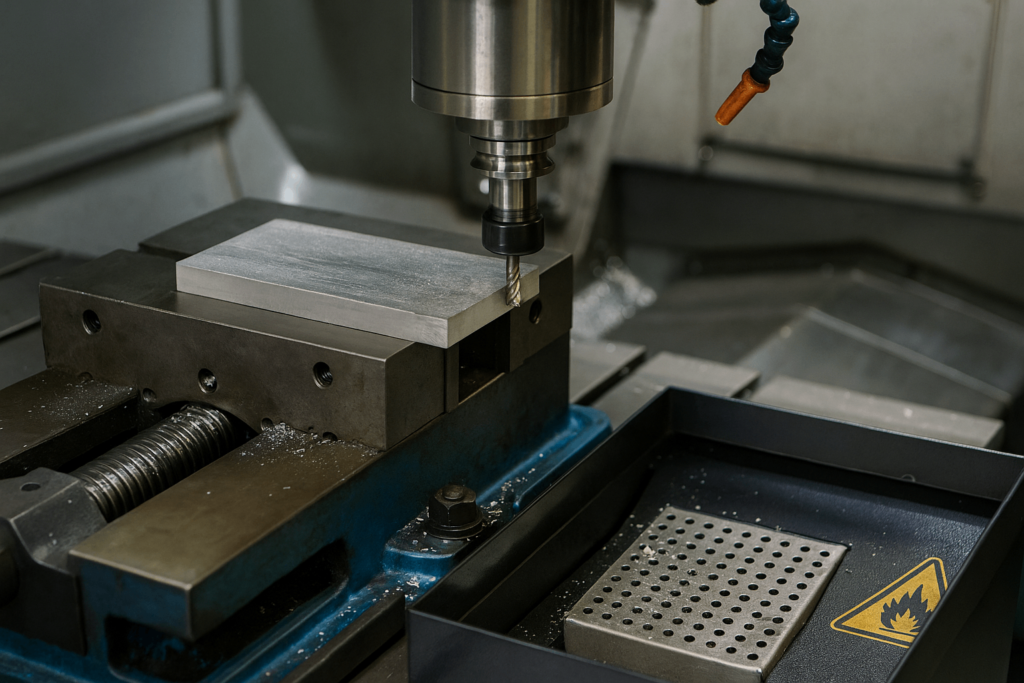Why This Question Matters — Especially for Wholesale Metal Buyers
When it comes to sourcing lightweight metal components for large-scale production, magnesium is one of the most compelling options available. Its high strength-to-weight ratio makes it ideal for reducing transport costs and improving product efficiency — key factors for wholesale buyers managing international logistics.
But an important question consistently arises: Is magnesium flammable, and how safe is it to specify in bulk orders? This guide addresses that concern directly. We’ll break down the fire behavior of magnesium during processing, its performance in alloy form, and how reliable manufacturers mitigate any associated risks.
If you’re evaluating magnesium for your next procurement project, this article will help you determine its suitability, understand supplier qualifications, and avoid common safety misconceptions.
What "Flammable" Means in Manufacturing Contexts
The word “flammable” can be misleading if not defined within the correct parameters. Magnesium has an ignition point of roughly 650°C (1,202°F), but it doesn’t mean the material is inherently unsafe. It depends on its condition, processing environment, and handling procedures.
In solid form — such as die-cast components, extruded profiles, or alloy sheets — magnesium is stable under regular operating temperatures. Regulatory agencies in both the EU and North America accept certain magnesium alloys for commercial use.
For wholesale buyers, the core concern is whether the supplier has the technical capability to handle magnesium safely at every stage. That assurance often makes the difference between a risky material and a high-performance solution.
When Does Magnesium Become a Fire Risk?
Magnesium poses the highest fire risk in powdered or chip form. During CNC machining or sanding, fine particles may accumulate, creating potential for combustion if not removed properly.
That said, a responsible fabricator prevents this through:
Efficient chip collection systems
Spark suppression and isolation zones
Strict material segregation protocols
Buyers evaluating potential suppliers should ask detailed questions about how these precautions are implemented in daily operations. Understanding this helps procurement teams confidently approve magnesium in their bill of materials.
Are Magnesium Alloys a Safer Choice for Volume Manufacturing?
For most export-grade components, magnesium is rarely used in its pure form. Instead, buyers work with engineered magnesium alloys designed to improve performance and reduce fire sensitivity. Common variants include AZ31, AZ91D, and ZE41 — each with unique chemical compositions tailored for safety, machinability, and durability.
| Alloy | Typical Use Case | Relative Flammability |
|---|---|---|
| AZ31 | Precision brackets, electronic enclosures | Very Low |
| AZ91D | Die-cast parts, mobile housings | Extremely Low |
| ZE41 | Structural aerospace parts | Stabilized |
Magnesium alloys generally feature higher ignition thresholds and more stable combustion behavior. When fabricated with appropriate safeguards, they comply with most international safety and flammability standards, including ISO 16220, ASTM B93/B93M, and REACH certification for EU markets.

What Should Buyers Confirm Before Approving Magnesium in Orders?
To ensure fire safety in bulk production, wholesale buyers should evaluate the supplier’s capabilities across four checkpoints:
Process Control – Are dust collection systems in place? Does the facility have dedicated equipment for reactive metals?
Material Documentation – Can the supplier provide full alloy grade certifications and flammability test results?
Staff Training – Are operators trained in magnesium machining protocols, including Class D extinguisher use?
Packaging & Logistics – How are the parts stored and labeled for shipping? Are all MSDS and export compliance documents available?
Working with a magnesium-capable supplier like YISHANG ensures these factors are integrated into production from the quoting stage. This minimizes surprises during inspections or customs clearance.
Frequently Asked Questions from Procurement Teams
Can magnesium parts pass international fire safety certifications?
Yes. When fabricated with appropriate safeguards, magnesium alloys like AZ91D meet UL 94, ISO 16220, and other compliance standards.
What’s the difference between magnesium and aluminum in terms of fire risk?
Aluminum has a higher ignition point, but modern magnesium alloys offer similar fire resistance in finished form. The key difference is in how they’re processed.
Is it legal to ship large volumes of magnesium parts by sea or air?
Yes, as long as proper packaging, labeling, and documentation are in place. Your supplier should provide compliant MSDS sheets and transport declarations.
Can magnesium components be used in outdoor applications?
Absolutely. With proper coating or anodizing, magnesium can perform well in outdoor and even marine environments.
Final Thoughts: Sourcing Magnesium Smartly
Magnesium’s flammability is a manageable factor when suppliers follow proven safety procedures. For wholesale buyers, the key is not avoiding magnesium — it’s selecting a manufacturer who understands how to oversee its processing with care and technical precision.
YISHANG works closely with global clients to ensure each magnesium part meets safety, compliance, and performance expectations from prototyping to packaging. If you’re considering magnesium for your next bulk order, we’re ready to support your decision-making with transparent information and technical guidance.



